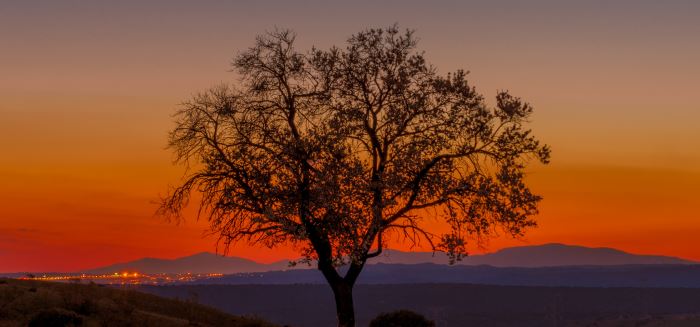Today we conclude our four-part series on the Stewardship of Creation with an article that anchors our identity and purpose as stewards within the scriptural witness. Look for the ways in which we work-till-serve and guard as God’s stewards. Please enjoy creation’s gifts as our northern readers witness the return of life to fields and forest.
Blessings,
Glenn Taibl, Co-Director
Center for Stewardship Leaders
Luther Seminary
Stewardship of Creation
Kathryn Schifferdecker
My family and I had the great privilege of living in Ethiopia while I was on sabbatical two years ago. We took the opportunity that spring to travel to the Serengeti, the vast plains that stretch across northern Tanzania and southern Kenya, inhabited by creatures varied and strange and wonderful: elephants, lions, cheetahs, leopards, impala, Cape buffalos, wildebeest, baboons, puff adders–the list goes on and on.
One evening, staying in a lodge without electricity, my husband and I walked out into the open-air courtyard and were stunned by what we saw. The stars of the Serengeti night, unobscured by any artificial light, filled the black velvet sky with brilliant points of light, diamonds spilled across every inch of sky. Looking up, we stared into the center of our own galaxy, a wide band of milky white punctuated by countless stars, a part of the sky so dense with stars that there was no visible space between them.
“When I look at your heavens,” the psalmist writes, “the work of your fingers, the moon and the stars that you have established; what are human beings that you are mindful of them, mortals that you care for them?” (Psalm 8:3-4)
I suddenly knew what the psalmist meant. We felt immensely small and insignificant under that brilliant night sky. But the psalm goes on, “Yet you have made them a little lower than God, and crowned them with glory and honor. You have given them dominion over the works of your hands; you have put all things under their feet” (Psalm 8:5-6). It is a tall order, this idea of “dominion,” and one that must be understood rightly.
There are many, many texts in the Bible that speak of creation, of the natural world, and of humanity’s place in it. Some of those texts (like Psalm 8 and Genesis 1) have been interpreted badly over the centuries and used to justify exploitation of the earth and its resources. Understood rightly, I would argue, those same texts teach us how we are to steward creation.
Both Genesis 1 and Psalm 8 speak of human beings having “dominion” over the rest of creation. With that dominion, however, comes great responsibility. If we are indeed made in God’s image (as Genesis 1 says), then surely we are to rule as God rules; that is, not as those who exploit and ravage the earth, but as caretakers, as stewards, as ones who work for the life of the rest of creation. God cares for creation; and we, as those made in the image of God, must do the same.
This role as stewards of creation is made even more explicit in other biblical texts. In Genesis 2, Adam is made out of the soil itself and then put in the Garden of Eden to “till it and to keep it” (Genesis 2:15). The two Hebrew verbs used in this verse are avad and shamar. The word avad can indeed mean to “work” or to “till” the soil. Its most common meaning, though, is to “serve.” The same word is used in Joshua 24:15: “As for me and my house, we will serve the LORD.” The word shamar means to “guard” or to “keep.” It is used in the famous blessing, “The LORD bless you and keep you” (Numbers 6:24).
Adam, then, is called to work, to serve, and to keep the Garden. It is a huge responsibility, and not one that we, the children of Adam, have been very good at fulfilling in the last two centuries or so. The earth, the air, the water — these are precious resources that have been entrusted to us as stewards. In all that vast expanse of galaxies under which I stood in the Serengeti night, there is only one planet we know of that can sustain life as we know it. “The earth is the LORD’s and all that is in it” (Psalm 24:1). We would do well to remember that truth–that the earth is the LORD’s, not ours–and to live accordingly, as good stewards of all that has been entrusted to our care.
Author
Kathryn Schifferdecker is Associate Professor of Old Testament at Luther Seminary and also serves as the Chair of the Bible Division. She is currently teaching courses in Scripture and its Witnesses and Vocational Formation-Learning Leadership.

